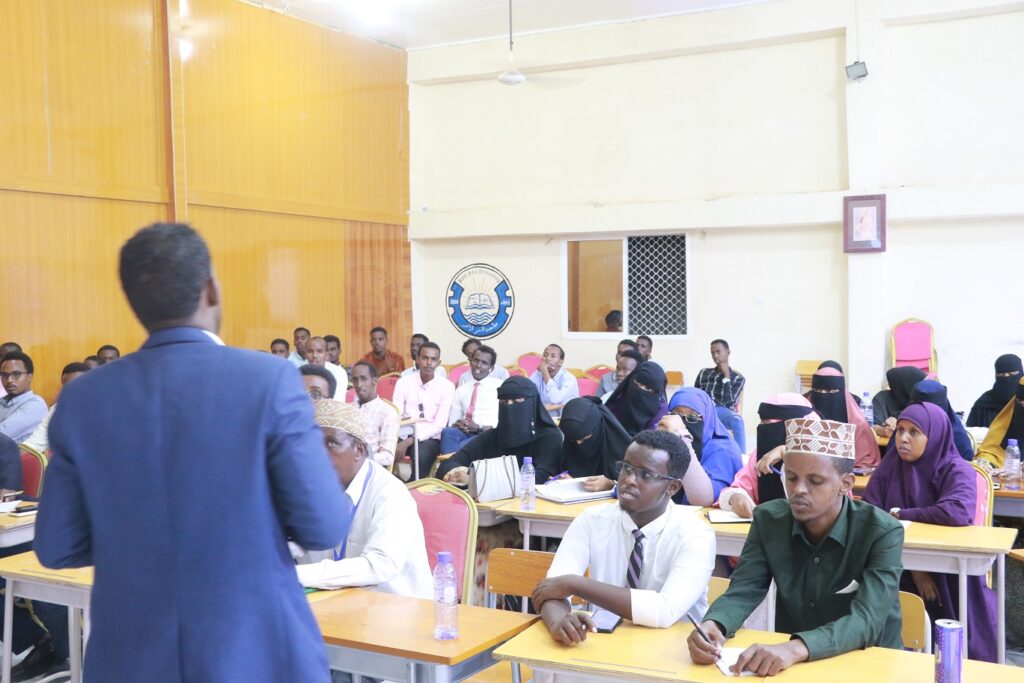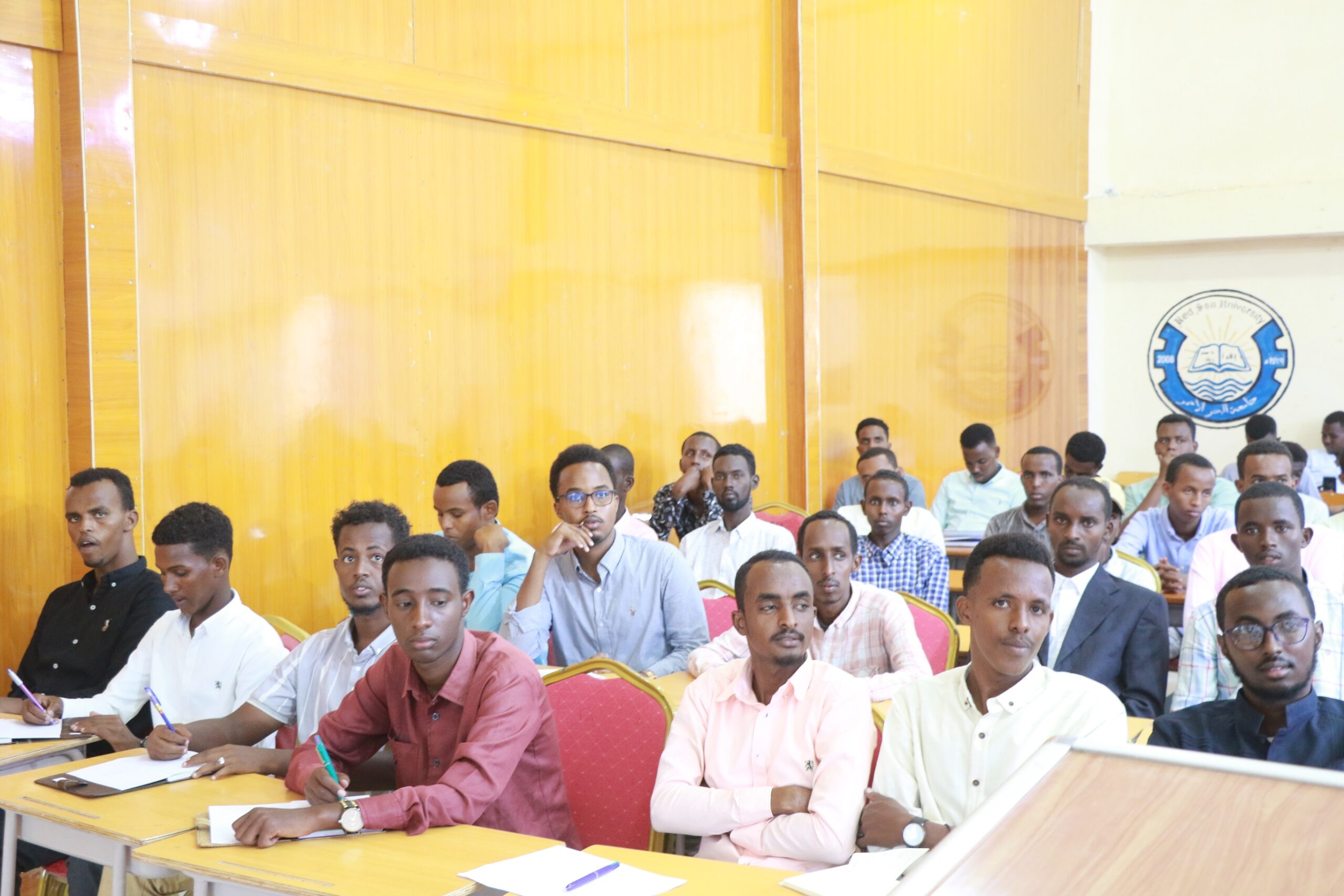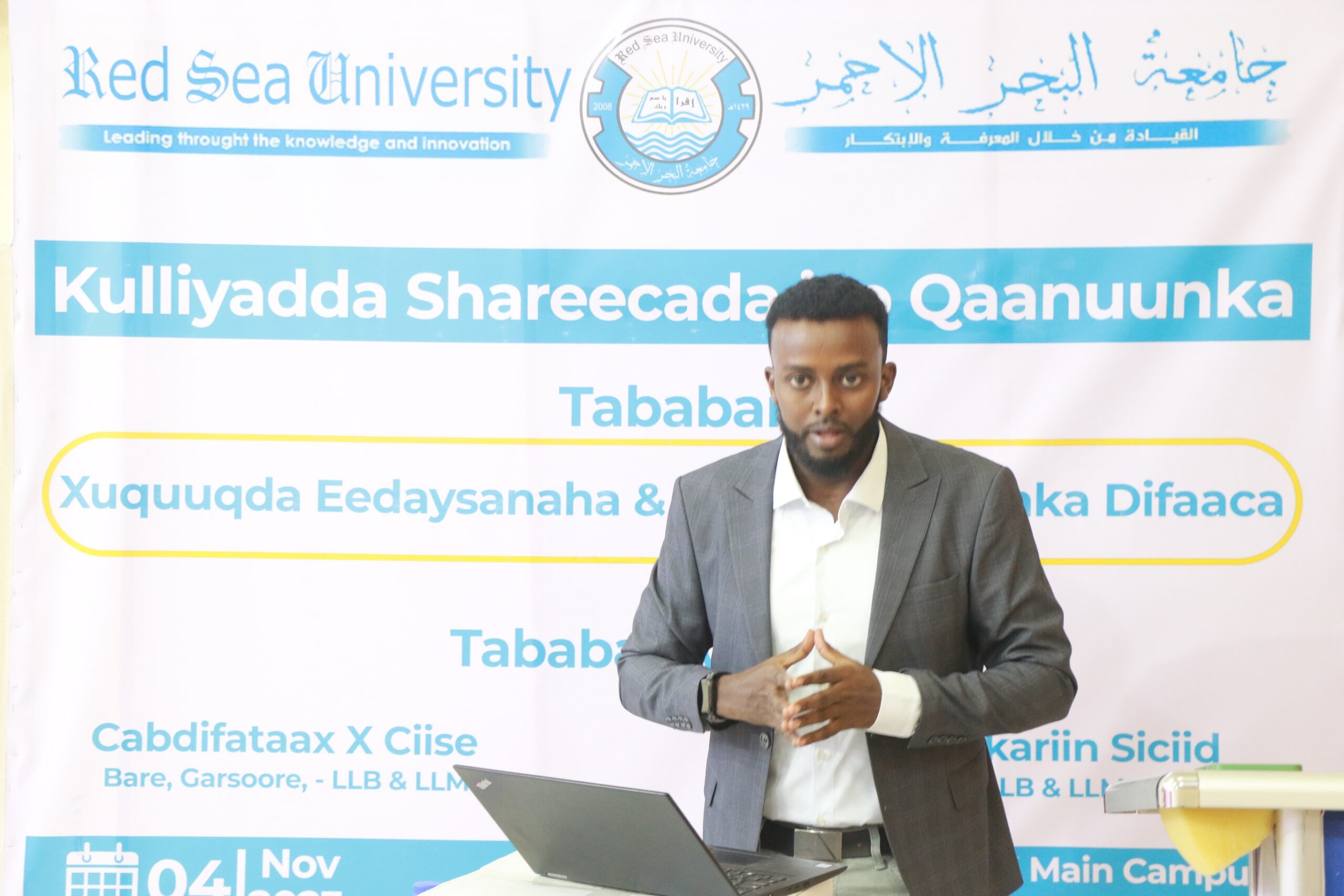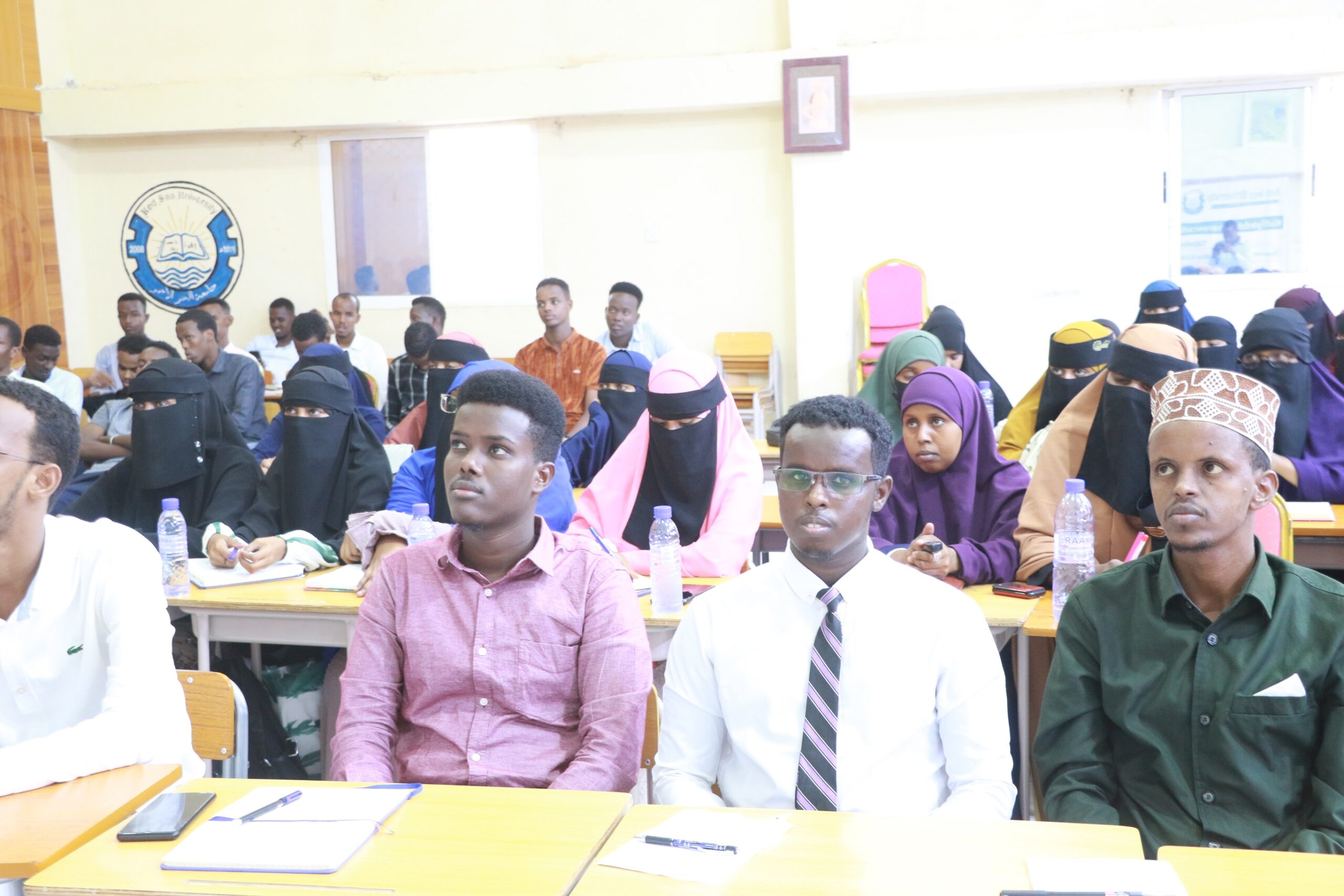Introduction
On 04/11/2023, the Faculty of Sharia and Law held training with a title on “The Rights of the Accused and the Defense Lawyer’s Role”. Abdikarim Said Yusuf, the first instance court judge in the Bari region, and Faculty Dean,AbdifatahIsse Muse, who is also the first instance court judge in Bari region, facilitated the training workshop.
The objectives of the training workshop were:
- To enhance the legal skills and career of faculty alumni as well as the current students.
- To highlight the rights of the accused and defense lawyer’s role during the penal trial.
- To explain the administration of the courtroom during the court session as well as the role of the defense lawyer towards the accused.
- To foster a dialogue among professionals involved in the legal field, including judges, lawyers, and law students.
- To establish a relationship between Red Sea University and the qualified specialists and legal experts.
- To help a minimum of seventy individuals advance their professional competencies in the legal profession.
There were 87 participants in total for this training. Participants included notary public, lawyers, faculty’s graduates, and the faculty’s current students. To effectively deliver the training contents, 4-hours of non-stop instruction were devoted to presentations, discussions, and analysis.
The topics discussed were:
- A general understanding of human rights and involved treaties, laws and provisions.
- To highlight the right to a fair trial and the concerned treaties, laws, articles, and provisions.
- The different categories of lawsuits under Somali law, including civil lawsuits, criminal, administrative, labor, and constitutional lawsuits.
- The rights of the accused during penal investigation and penal pleading.
- The fundamental principles of the criminal law that grants the particular rights to the accused.
- The definition of a lawyer in Puntland state laws as well as federal laws in Somalia
- Role of the lawyer in various sessions during penal trial at courtroom.
- The questions posed by the judge, the prosecutor, and the lawyers during the criminal case trial in court.
Conclusion
Finally, the training was successfully completed and delivered according to schedule. The participants’ expressions conveyed that they were pleased with the program. They were excited about the debates and analysis that happened in the training room as they engaged in discussions with the trainers and posed questions and reactions. They recommended that more training of this kind be given. The training workshop was free of charge.
The faculty of Sharia and Law would like to thank the organizers, the participants, and Mr. Abdikarim for voluntarily facilitating this training.




